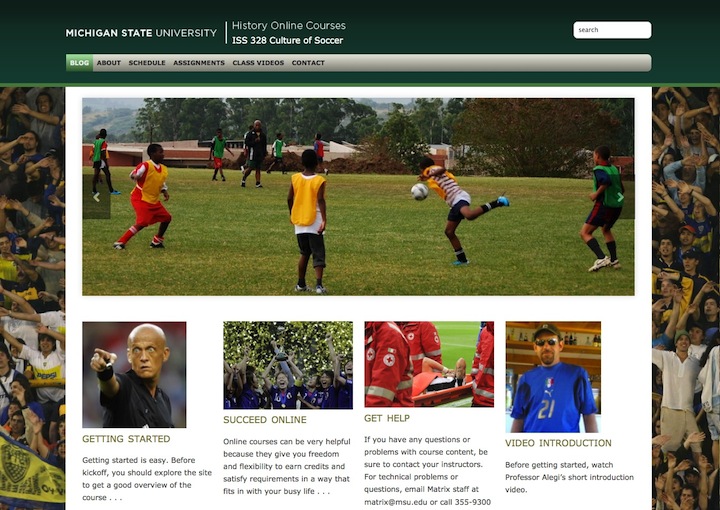
My online course “Culture of Soccer” launched today at Michigan State University. With 120 students enrolled, it recognizes and nurtures younger Americans’ growing appetite for fútbol. It may even be read as a “‘rejection’ of U.S. isolationist/exceptionalist attitudes,” as @OhioGooner put it to me on Twitter. But it’s also important to note that the course satisfies a social science component of MSU’s general education requirements.
As an exercise in pragmatism and poetry, this seven-week course explores fútbol and social change in a global context. It combines general analysis with specific case studies to make connections across time and space. By examining the intersections of the historical and the contemporary, the individual and the social, the local and the international, it explores how and why race, ethnicity, class, gender, media, and business made, and continue to make, the world of soccer we see today.
The course takes place almost entirely on the class WordPress site. Hosted and designed by the good people at Matrix–the digital humanities center at MSU–the class blog is where students write and comment on the assigned readings and the password-protected lecture videos. MSU’s new course management system (Desire2Learn) complements the WordPress site as a simple way to submit final papers and to release grades.
Why online teaching? First, it provides our department with much-needed funds for faculty research and the graduate program at a time of vicious budgetary cuts. Second, it strengthens our department’s partnership with Matrix. Third, online teaching funds two of my PhD students, Hikabwa Chipande and Liz Timbs, whose labor as teaching assistants greatly eases the burden of grading and class management. Last and certainly not least, the digital domain gives me another way to enjoy doing the work I love, and produce and share knowledge beyond the boundary of the brick-and-mortar classroom. Let the games begin.
Tag: History
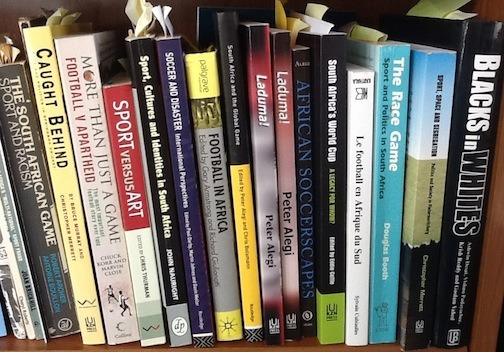
Guest Post by *Marc Fletcher
Gloomy skies and wet weather greeted the Research Forum on South African Football held at the University of Johannesburg (UJ) last month. The bleak conditions made for an intimate crowd, but the academics, journalists and sports practitioners in attendance were rewarded with three strikingly different presentations on varying aspects of the “beautiful game” in South Africa. The aim of the forum was to advance the specialized study of soccer in the country and beyond.
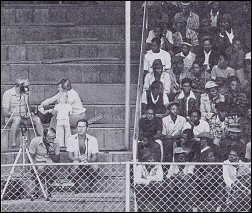 First up was Chris Bolsmann, a South African sociologist based at Aston University, Birmingham. His paper entitled “Professional Football in Apartheid South Africa: Leisure, Consumption and Identity in the National Football League, 1959-1977” provided a rich history of the whites-only National Football League (NFL) during apartheid. The common misconception of South African football is that it has historically been, and continues to be, an exclusively black, working-class game. Yet, Chris’s work challenges such a perception and begins to reconstruct a past that is often forgotten or even ignored. Matches in this white league were staged in front of segregated crowds. A successful corporate affair, the NFL attracted a host of world-renowned players, including George Best and Bobby Charlton. In concluding that the NFL became the leisure and sporting entertainment of choice for significant numbers of white and black (particularly Indian and Coloured) South Africans, this history emphasized how football in South Africa has had a more diverse support base than is often acknowledged.
First up was Chris Bolsmann, a South African sociologist based at Aston University, Birmingham. His paper entitled “Professional Football in Apartheid South Africa: Leisure, Consumption and Identity in the National Football League, 1959-1977” provided a rich history of the whites-only National Football League (NFL) during apartheid. The common misconception of South African football is that it has historically been, and continues to be, an exclusively black, working-class game. Yet, Chris’s work challenges such a perception and begins to reconstruct a past that is often forgotten or even ignored. Matches in this white league were staged in front of segregated crowds. A successful corporate affair, the NFL attracted a host of world-renowned players, including George Best and Bobby Charlton. In concluding that the NFL became the leisure and sporting entertainment of choice for significant numbers of white and black (particularly Indian and Coloured) South Africans, this history emphasized how football in South Africa has had a more diverse support base than is often acknowledged.
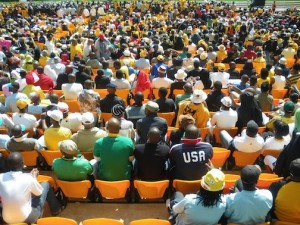 My paper on “Divisions, Difference and Encounters in Johannesburg Soccer Fandom,” explored contemporary cultures of fandom beset by race and class divisions, where domestic football is regularly constructed as an Africanized space without white supporters. However, through an ethnography of Kaizer Chiefs, Bidvest Wits, and Manchester United supporters’ clubs in Johannesburg, I began to explore the deeper complexities, where supporters on the margins of these groups began to engage with the other. In doing so, some fans challenged these social barriers in football and thus reinterpreted their understanding of soccer fandom and their wider experiences of everyday life in the city.
My paper on “Divisions, Difference and Encounters in Johannesburg Soccer Fandom,” explored contemporary cultures of fandom beset by race and class divisions, where domestic football is regularly constructed as an Africanized space without white supporters. However, through an ethnography of Kaizer Chiefs, Bidvest Wits, and Manchester United supporters’ clubs in Johannesburg, I began to explore the deeper complexities, where supporters on the margins of these groups began to engage with the other. In doing so, some fans challenged these social barriers in football and thus reinterpreted their understanding of soccer fandom and their wider experiences of everyday life in the city.
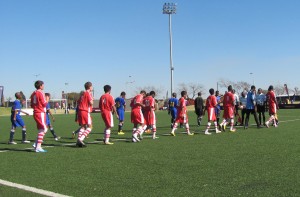 Chris Fortuin, based in the Department of Sport and Movement Studies at UJ, gave the third paper–an eye-opening account of the grim state of youth development in South African football. It was alarming to hear the inadequate ratio of qualified youth coaches to players in South Africa compared to some of the giants of international soccer, especially Spain. The shortage of such coaches, along with the absence of a coherent development plan at the national level, is harming the game at all levels and has contributed to the malaise of the men’s national team, Bafana Bafana.
Chris Fortuin, based in the Department of Sport and Movement Studies at UJ, gave the third paper–an eye-opening account of the grim state of youth development in South African football. It was alarming to hear the inadequate ratio of qualified youth coaches to players in South Africa compared to some of the giants of international soccer, especially Spain. The shortage of such coaches, along with the absence of a coherent development plan at the national level, is harming the game at all levels and has contributed to the malaise of the men’s national team, Bafana Bafana.
The presentations encouraged members of the audience to think more seriously about football as an academic field of inquiry. During the second half of the forum panelists responded to numerous questions from the floor. One question stuck out, one that is often asked; why are black South Africans not writing about this subject? It is true that much of what is written on the subject is by foreigners like me. But a main goal of football scholars, regardless of origin, is to empower South African students in the humanities and social sciences (and other fields) with tools and desire to critically engage with football studies.
With questions on the presentations filling up the second half, the question of where does the academic study of South African football go from here was left unresolved. Events such as the UJ forum can play a vital role in motivating South African scholars to research and write about their game. Clearly, football is a legitimate and fascinating area of research. But many more events like the forum are needed to further develop the field and chart future directions.
To this end, readers of this blog who are in the Johannesburg area, are welcome to attend the UJ Wednesday Seminar Series on Wednesday, May 8, at 3:30pm, where I will be presenting a paper entitled “Reinforcing Divisions and Blurring Boundaries: Race, Identity and the Contradictions of Johannesburg Soccer Fandom.” For details about the event click here.
The journey continues.
*Marc Fletcher, a postdoctoral fellow at the University of Johannesburg, blogs at One Man and His Football: Tales of the Global Game. Follow him on Twitter: @MarcFletcher1
In this video, Alex Galarza and I discuss digital fútbol scholarship at Michigan State University. The conversation ranges from Galarza’s doctoral dissertation entitled “Between Civic Association and Mass Consumption: The Soccer Clubs of Buenos Aires,” to the Football Scholars Forum, the online football think tank.
For more information about Galarza’s research click here.
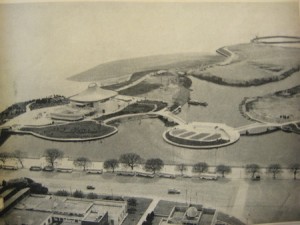 Alex Galarza, a PhD student in history at Michigan State University and co-founder of the Football Scholars Forum, has been awarded the João Havelange Research Scholarship. This prestigious award is administered jointly by FIFA and CIES (Centre International d’Etude du Sport), an independent research center created in 1995 by the governing body in collaboration with the University of Neuchâtel, and the City and State of Neuchatel, Switzerland.
Alex Galarza, a PhD student in history at Michigan State University and co-founder of the Football Scholars Forum, has been awarded the João Havelange Research Scholarship. This prestigious award is administered jointly by FIFA and CIES (Centre International d’Etude du Sport), an independent research center created in 1995 by the governing body in collaboration with the University of Neuchâtel, and the City and State of Neuchatel, Switzerland.
Galarza’s project is titled “Between Civic Association and Mass Consumption: The Soccer Clubs of Buenos Aires.” It explores how clubs developed as both centers of mass spectacle and sites of everyday urban sociability. Club members and officials used political connections to secure city space and public subsidies for stadiums and the overall success of their professional teams. While clubs became centers of patronage and spectacle, they were also non-profit civic associations central to social and cultural activities in the city. Clubs provided educational facilities, libraries, leisure space, and political forums for their members.
Galarza’s research examines the tensions within football clubs during the mid-twentieth century, an era when Argentine society entered a period of deep economic and political changes following the ouster of Juan Domingo Perón in 1955. Perón’s project aimed at developing a new kind of citizen and civic culture in which the popular classes would have a greater political voice and heightened access to new forms of mass consumption. Mass political participation and consumption remained critical and unresolved tensions during the democratic and military governments that followed. One powerful example of how soccer clubs gave shape and meaning to civic engagement, popular spectacle, and mass consumption is Boca Juniors’ Ciudad Deportiva (in photo above). This failed project was a mix between a stadium complex and amusement park, built over seven artificial islands on sixty hectares of land filled in the Rio de la Plata.
Click here to read a digital version of Galarza’s preliminary work on the fascinating history of the Ciudad Deportiva.
Check back with us for an interview with Galarza in the coming days.
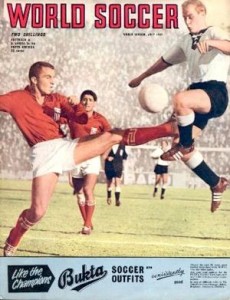 Stryker-Indigo New York, a private multi-media film and print production company, has announced the acquisition of a major collection of 1950s-1960s 8mm and 16mm soccer films.
Stryker-Indigo New York, a private multi-media film and print production company, has announced the acquisition of a major collection of 1950s-1960s 8mm and 16mm soccer films.
The film footage, featuring both university and international teams playing in American cities, contains rare home movie images of the history of the game in the United States. For example, there is footage of the first leg of the 1961 U.S. Open Cup Final between United Scots of Los Angeles and Ukrainian Nationals of Philadelphia at Rancho La Cienega Stadium in LA (now Jackie Robinson Stadium).
According to the Stryker-Indigo web site, its Futbol Heritage Archive houses nearly 9,000 historic photographs, slides, newspaper clippings, postcards, trophies, jerseys and artifacts. Following the closure of the US Soccer Hall of Fame in Oneonta, NY, researchers have lost access to an archive of more than 80,000 items, including the North American Soccer League archive and the 1994 World Cup archive. It is hoped that private collections such as Stryker-Indigo’s film footage will be made accessible to soccer researchers and aficionados so that the history and culture of the game can be properly recorded and disseminated.
***
Thanks to David Wallace for inspiring me to write this post.
Fútbol and Politics in Chile
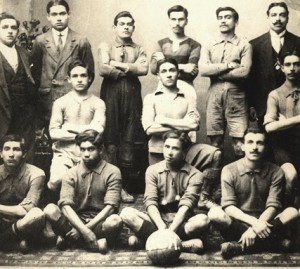 The Football Scholars Forum launches its 2011-12 season this Friday (Sept. 23, 3pm EDT) with Brenda Elsey’s new book Citizens and Sportsmen: Fútbol and Politics in Twentieth-Century Chile (University of Texas Press, 2011). It’s a fresh look at life in twentieth-century Chile through an exploration of how fútbol clubs integrated working-class men into urban politics, connected them to parties, and served as venues of political critique. You can join the conversation online via Skype. For more information visit the FSF website.
The Football Scholars Forum launches its 2011-12 season this Friday (Sept. 23, 3pm EDT) with Brenda Elsey’s new book Citizens and Sportsmen: Fútbol and Politics in Twentieth-Century Chile (University of Texas Press, 2011). It’s a fresh look at life in twentieth-century Chile through an exploration of how fútbol clubs integrated working-class men into urban politics, connected them to parties, and served as venues of political critique. You can join the conversation online via Skype. For more information visit the FSF website.
Melissa Block of NPR’s ‘All Things Considered’ interviewed me about soccer’s long history in Africa. Soccer was brought to Africa by British colonials in the mid-1800s. The first documented game on the continent was played in South Africa in 1862, a year before soccer’s official rules were codified. As I argue in African Soccerscapes, soccer has been an important sport in Africa for as long as it was played in Europe.
Click here to listen to the interview and read a transcript.
Was also interviewed by and quoted in this New York Times article: Soccer Returns to its Roots in Africa
